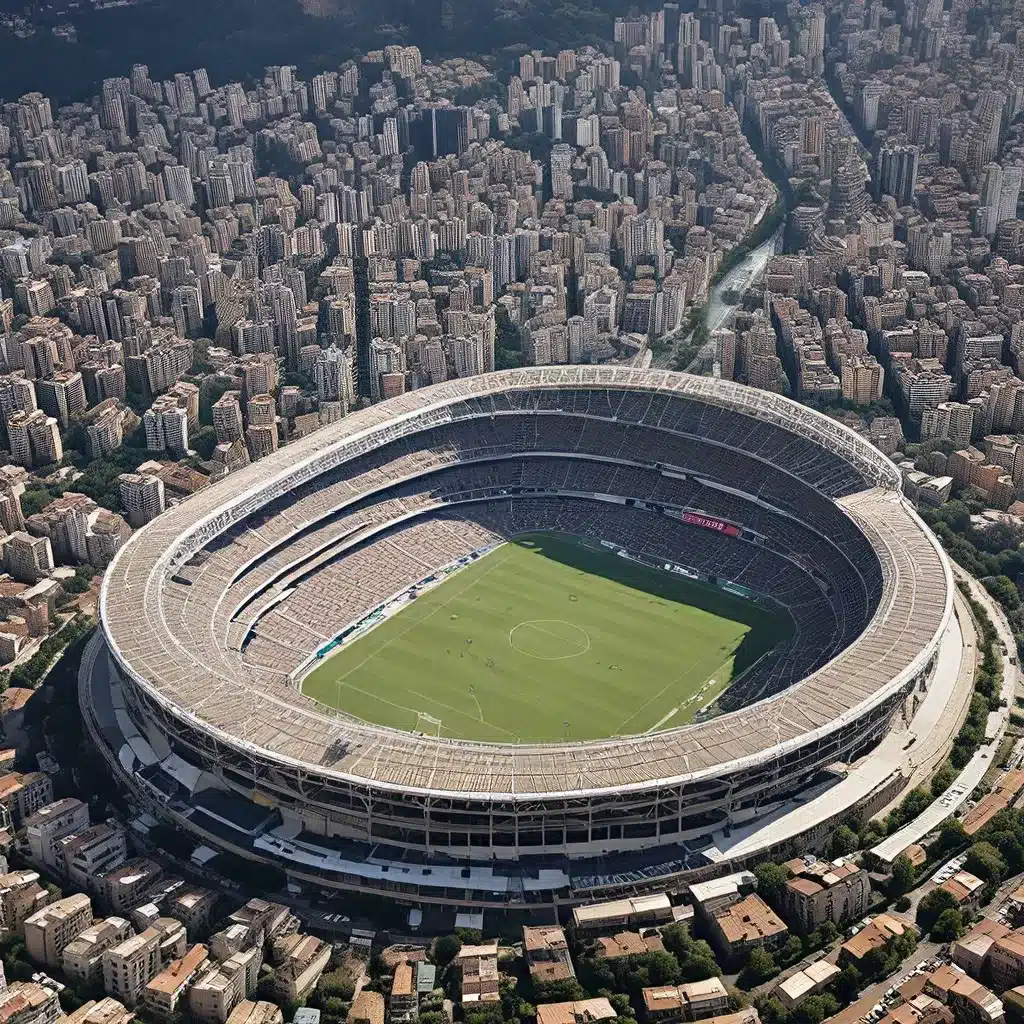
The Stadium’s Iconic History
The Maracana stadium, located in the heart of Rio de Janeiro, Brazil, holds a revered place in the annals of football history. This colossal arena, built in 1950 to host the FIFA World Cup, has become synonymous with the passion, creativity, and unwavering devotion that characterize the Brazilian footballing culture.
From the moment the stadium first opened its doors, it has been a beacon of hope and pride for the Brazilian people. The 1950 World Cup final, played between Brazil and Uruguay, is etched in the collective memory of Brazilians as the “Maracanazo” – a heartbreaking defeat that left an indelible mark on the nation’s psyche. Despite this initial setback, the Maracana has since risen to become a symbol of resilience, a testament to the enduring spirit of the Brazilian football faithful.
The New York Times captures the essence of this “curse” that has haunted Brazil for decades, a reminder of the high stakes and passionate emotions that surround the beautiful game in this country.
Maracana’s Architectural Evolution
The Maracana’s architectural journey has been a reflection of Brazil’s evolving national identity and its growing status on the global stage. Originally designed to accommodate over 200,000 spectators, the stadium’s sheer scale and imposing presence exemplified the country’s ambition to host the world’s premier football event.
Modernization efforts in the decades that followed have transformed the Maracana, adapting it to changing times and the evolving demands of the sport. As the CBC reports, the stadium’s recent renovations have sparked controversies, with the removal of standing-room sections and the introduction of more exclusive seating areas seen by some as a betrayal of its “people’s stadium” origins.
Nevertheless, the Maracana’s architectural evolution has been a complex and nuanced process, reflecting the nation’s grappling with its own identity and the balance between tradition and progress.
The Maracana as a Cultural Icon
The Maracana’s significance extends far beyond its role as a mere sports venue. It has become a cultural icon, a symbol of Brazil’s rich footballing heritage and the boundless passion that fuels the nation’s love for the game.
As EventMundi eloquently describes, the stadium is the “beating heart of Brazilian football culture,” a place where the country’s unique blend of flair, rhythm, and collective spirit is on full display. From the vibrant chants and colorful banners of the fervent fans to the mesmerizing skills of the legendary players who have graced its pitch, the Maracana has become a reflection of the nation’s cultural identity.
The stadium’s rich history has seen it play host to some of the most iconic moments in football history, from Pele’s record-breaking achievements to the triumphant World Cup victories of the Brazilian national team. These moments have become ingrained in the collective memory of Brazilians, forging an unbreakable bond between the people and their beloved Maracana.
The Maracana’s Enduring Legacy
As the Maracana continues to evolve, its enduring legacy as a cultural and sporting landmark remains undiminished. The stadium’s ability to captivate and unite the Brazilian people, transcending the boundaries of mere fandom, is a testament to its profound significance.
While the modernization efforts may have altered the stadium’s physical appearance, the essence of the Maracana remains unchanged. It is a place where the heart and soul of Brazilian football are laid bare, where the passion and pride of the nation are celebrated, and where the dreams of countless football enthusiasts are given life.
The Old Stadium Journey website provides a unique opportunity for fans and visitors to immerse themselves in the rich history and cultural significance of the Maracana, connecting them to the very fabric of Brazilian football.
As the country continues to evolve, the Maracana stands as a timeless symbol, a constant in the ever-changing landscape of the beautiful game. Its legacy will endure, inspiring generations of Brazilians to come, and cementing its place as the beating heart of the nation’s football culture.
Conclusion
The Maracana stadium is more than just a sports venue – it is a cultural touchstone, a repository of history, and a testament to the unwavering passion of the Brazilian people. From its humble beginnings to its current status as a global icon, the Maracana has weathered triumphs and tragedies, but it remains the beating heart of Brazilian football.
As the country looks to the future, the Maracana’s significance will only continue to grow, serving as a reminder of the inextricable link between the people, the sport, and the nation’s proud identity. Whether you are a lifelong fan or a first-time visitor, a journey to the Maracana promises to be a truly unforgettable experience, one that will leave an indelible mark on your understanding of the beautiful game and the indomitable spirit of Brazil.

